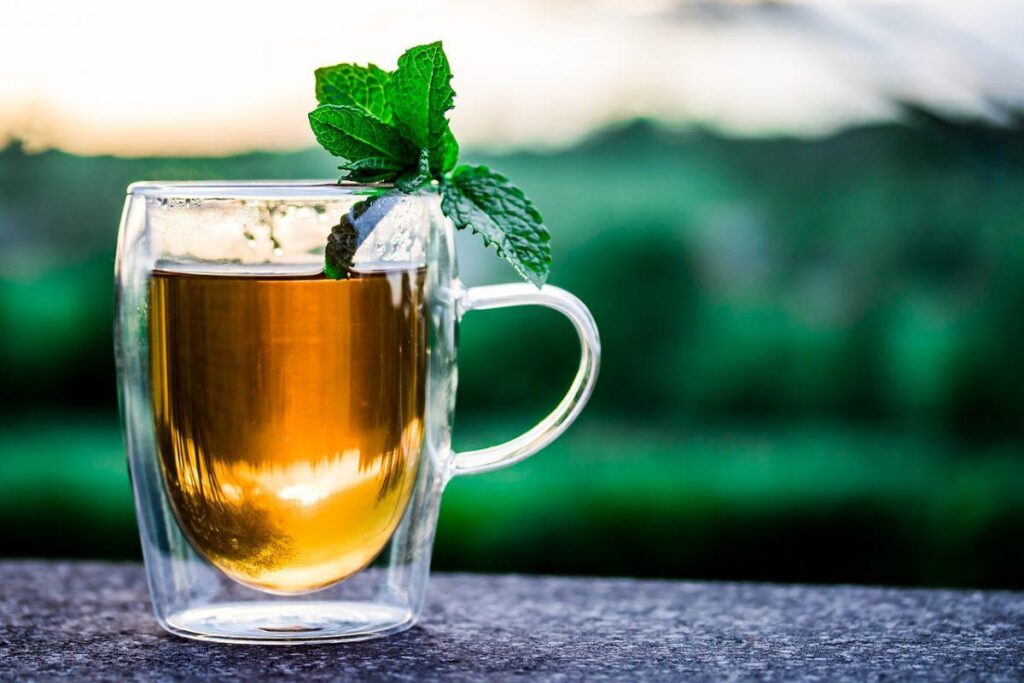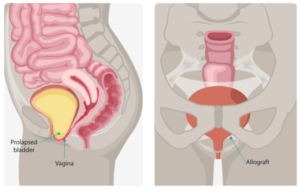Solution of Gas and bloating with best 5 Herbal Tea | Wellhealthorganic.com

Wellhealthorganic.com:5-Herbal-Teas-You-Can-Consume-To-Get-Relief-From-Bloating-And-Gas
Hey, all my health-conscious readers! Gas and bloating are issues which we all face and it is essential that we understand how we can deal with these problems. The best solutions are, of course, the herbal solutions! says “Wellhealthorganic.com:5-Herbal-Teas-You-Can-Consume-To-Get-Relief-From-Bloating-And-Gas” Many people use natural remedies to alleviate these symptoms, such as herbal teas.
Herbal teas are used for centuries to promote overall wellbeing and health; some are especially effective in addressing digestive issues. In this article we’ll discuss gas and bloating as it’s related to the process of bloating. We also talk about the various herbal teas and how to make every one of them, as talked about in “Wellhealthorganic.com:5-Herbal-Teas-You-Can-Consume-To-Get-Relief-From-Bloating-And-Gas.”
Also Read: wellhealthorganic.com:diet-for-excellent-skin-care-oil-is-an-essential-ingredient
What is bloating according to “Wellhealthorganic.com:5-Herbal-Teas-You-Can-Consume-To-Get-Relief-From-Bloating-And-Gas”?
A bloated stomach first and foremost is the feeling of tightness, pressure or fullness of your abdomen. It could or might not be accompanied by an expanding abdomen. The sensation can range from moderately uncomfortable to painfully so. The feeling usually subsides after a time, but for a few people, it remains an issue. Bloating episodes can originate from digestion problems or fluctuations to hormone levels.
10 25 to 10 percent of people who are healthy have reported occasional abdominal swelling. Up to 75% of those surveyed say they suffer from mild to moderate symptoms. 10% of the people surveyed say they do so regularly. IBS patients can suffer from it up to 90 percent of the times. Women can experience bloating as high as 75% of the time, both before and during their periods. About half of women who suffer from bloating also experience an abdominal enlargement.
Also Read: wellhealthorganic.com:red-chilli-you-should-know-about-red-chilli-uses-benefits-side-effects
Gas
Gas is an inevitable byproduct of digestion. However, persistent intestinal gas indicates a digestive issue. According to “Wellhealthorganic.com:5-Herbal-Teas-You-Can-Consume-To-Get-Relief-From-Bloating-And-Gas” Gases can be ingested by breathing in air or drinking carbonated beverages, but the vast majority are belched out before reaching your intestines. Gases are generated primarily by the intestines because of the process of fermentation that takes place when gut bacteria break down carbohydrates.
Many carbohydrates that ought to have been consumed earlier in the digestion process, prior to reaching the bacteria in the gut, were not able to be absorbed, which resulted in an over-production of ferment. There are a variety of reasons that could be behind this. Your digestion might have been affected by eating at a rapid pace. You may also be suffering from a digestive problem or a food intolerance.
Wellhealthorganic.com:5-Herbal-Teas-You-Can-Consume-To-Get-Relief-From-Bloating-And-Gas: The best herbal teas
As talked about in “Wellhealthorganic.com:5-Herbal-Teas-You-Can-Consume-To-Get-Relief-From-Bloating-And-Gas,” herbal teas are an amazing solution to deal with bloating and gas. This is because of many factors. The preparation of herbal tea is Ayurvedic in nature, which means that it can be used to treat ailments using natural methods!
Also Read: wellhealthorganic.com:winter-skin-care-tips-home-remedies-to-keep-your-skin-moisturised
The top 5 herbal teas to ease gas and bloating are:
Peppermint
Peppermint (Mentha piperita) is used for centuries in traditional medicine for its digestive-soothing properties. Previous research on peppermint plant components in test tubes as well as animals suggested that inhibiting activity of immune cells in the digestive tract could result in bloating. Previous research on peppermint plant substances in test tubes and animals suggested that blocking the function of immune cells in the gut could cause bloating. Peppermint oil capsules could help in the treatment of digestive symptoms like bloating and stomach pain.
- Natural Antispasmodic:The antispasmodic effects of the peppermint compound menthol help to relax the smooth muscles in the gastrointestinal tract. Through relaxing, bloating and gas-related cramping, spasms, and discomfort are reduced.
- Carminative Qualities Peppermint is also known to have carminative qualities that aid your body to eliminate gas. It can help reduce the sensation of bloating and feeling full following a meal.
- Increases Bile Production and Digestive Enzyme Secretion: Peppermint tea is a great way in promoting bile production as well as the release of digestive enzymes. This enhances digestion and helps prevent gas from building up in the stomach and intestines.
Wellhealthorganic.com:5-Herbal-Teas-You-Can-Consume-To-Get-Relief-From-Bloating-And-Gas | How to make Peppermint tea?
- Water that is boiling: Warm a cup water in a pot or kettle until it’s at the point of a rolling boiling.
- Prepare the peppermint leaves: Use fresh peppermint leaves after a gentle wash and patting them dry. Set aside 1-2 teaspoons for dry leaves.
- The leaves should be soaked: Fill a teapot or cup with dried or fresh peppermint leaves. When the water is boiling and sprinkled over the leaves, let them sit for five to 10 minutes.
- Strain and serve:After steeping, tea must be strained to get rid of the leaves before pouring into a cup. It is up to you what you prefer, you can drink it hot or cold.
- Change the flavor of your tea To improve the flavor of your peppermint, try adding honey, lemon or even cinnamon sticks. Be sure to stay away from sugar, as it can cause gas and make you feel bloated and uncomfortable.
Also Read: wellhealthorganic.com:11-health-benefits-and-side-effects-of-olives-benefits-of-olives
Lemon balm
The Mediterranean region is where lemon balm, also known as Melissa officinalis, grows. Gastric issues that are mild like gas and bloating, have traditionally been treated using lemon balm. It also comprises an important portion of Iberogast. This digestive supplement of “Wellhealthorganic.com:5-Herbal-Teas-You-Can-Consume-To-Get-Relief-From-Bloating-And-Gas” also contains a number of herbal extracts that may help with symptoms of digestive discomfort like constipation and pain in the abdomen. Animal studies suggest lemon balm might also aid in promoting regularity and reduce the frequency of intestinal spasms. It is imperative to conduct more research because the benefits of lemon balm or its tea on digestion issues among people are yet to be investigated separately.
- Effect on spasms: Lemon balm tea acts as an antispasmodic by decreasing gastrointestinal spasms and cramps that may cause gas and bloating. This is achieved by calming the muscles of the digestive tract.
- Carminative effects: The lemon balm plant assists to ease gas in the digestive tract. It helps to reduce bloating and discomfort. This is due to its carminative effects.
- Calming effects: The stress and anxious state can occasionally aggravate digestive issues like bloating and gas, but lemon balm tea has calming properties that can reduce symptoms.
How do I create Lemon balm tea?
- Bring water to the point of boiling:Heat a cup of water.
- Tea should be steeped in the following manner: Put a teacup with a couple of teaspoons of lemon balm leaf or a lemon balm teabag in it. Pour boiling water over the leaves, then let them infuse for five to ten minutes.
- Strain and, if desired add sweetener: Use a strainer to take the leaves out of your tea if using loose lemon balm leaves. If you’re looking to sweeten the tea, use Stevia or honey; however avoid sugar, since it can cause gas and gastric bloating.
- Drink and relax: Warm tea should be consumed slowly in order to reap the benefits its relaxing properties. Bloating and gas can be alleviated when drinking lemon-balm tea two to three times daily at least after eating.
Also Read: wellhealthorganic.com:facial fitness anti aging facial exercises to look younger every day
Fennel
The Fennel (Foeniculum vulgare) is a very fragrant plant in the Apiaceae family. Its seeds have a wealth of therapeutic properties, notably for the digestive system, because of its presence in active substances such as Anethole. Fennel tea according to “Wellhealthorganic.com:5-Herbal-Teas-You-Can-Consume-To-Get-Relief-From-Bloating-And-Gas” is a tasty and healthy way to relieve gas and bloating. Its antispasmodic and carminative qualities assist in the calming of the gastrointestinal tract, the elimination of gas accumulation, and the overall improvement of digestive health. Drinking fennel tea on a regular basis will help ease gas and bloating as well as improving the health of your digestion.
- Natural Antispasmodic: Fennel is anethole-rich plant which is antispasmodic and can help to relax the muscles that smooth stomach and intestines. This can help ease the spasms and cramps and discomfort that is caused by gas and bloating.
- Carminative Properties Carminative qualities of fennel assist in eliminating excess gas and toxins from our digestive system. This can reduce the feeling of bloating and feeling of being full after eating.
- Enhances Bile Production and Digestive Enzyme Secretion: Fennel tea can increase digestion enzyme and bile secretion, enhancing digestion overall and preventing gas build-up inside the stomach, and intestines.
How do I produce Fennel tea?
- Water to boil In an oven or a kettle, bring one cup of water to a steady boil.
- Make the seeds of fennel in this manner: Take 1-2 teaspoons of fennel seeds that have been crushed.
- Make the seeds sour: Put the ground seeds of fennel in teapots or cups. Set aside for 10 minutes, after placing boiling water on the seeds.
- Strain, serve and enjoy:Pour the tea into a cup after straining the tea to eliminate of the seeds. Based on your preferences the tea can be served chilled or warm.
- Make your tea more personal: To enhance the flavor of your fennel tea, add honey, lemon, or a cinnamon stick. Sugar, which can cause gas and bloating, must be kept away from.
Ginger
Ginger tea has been utilized to treat digestive problems since the beginning of time. According to studies that suggest a daily dose of 1-1.5 g of ginger capsules divided into two doses can lower nausea. Supplements made of artichoke and ginger have also been shown to improve the movement of food through the intestinal tract and lessen discomfort with digestion.
- Natural Antispasmodic Ginger’s antispasmodic qualities help to relax the smooth muscles of the digestive tract. This relaxation can help to ease spasms, cramps and pain due to gas and bloating.
- Carminative Properties:Ginger can also have carminative properties that aid in helping the body get rid of gas in the digestive tract. It can also help in reducing gas and bloating that occurs after meals.
- Improves Digestive Function Ginger tea can stimulate in the production of digestive enzymes, which can aid in digestion overall. A better digestion will help reduce gas accumulation in the stomach and intestines.
Also Read: wellhealthorganic.com:easy-way-to-gain-weight-know-how-raisins-can-help-in-weight-gain
How do I create Ginger tea?
- Water to boilHeat 1 cup of water in a kettle or saucepan until it reaches boiling.
- Prepare the ginger: Slice or cut a small slice (about 1 – 2 inches) of fresh ginger. A couple of teaspoons of dried ginger powder should be utilized.
- The ginger is boiled: Fill a teapot or cup with half full of the fresh slices of ginger, or dry powder. After you cover the ginger with boiling water, let it sit for 5 to 10 mins.
- Serve immediately after straining: After the tea has brewed and strained, strain it out to get rid of the pieces of ginger or powder. Pour it into one cup. Your preference will determine whether you prefer to drink the tea either cold or hot.
- Create your own tea: By adding honey, lemon, or the cinnamon stick, you can enhance the taste the ginger in tea. Avoid adding sugar since it may cause bloating or gas!
Chamomile
Chamomile (Matricaria of chamomilla) is a daisy family member with delicate white blossoms. According to some older research conducted on animals and test tubes it is believed that chamomile could protect against Helicobacter pylori-related bacterial infections which are the primary source of stomach ulcers. They also are linked to constipation. Chamomile is one of the herbal ingredients in Iberogast which has been proven to ease stomach pain and ulcers. Human studies are still needed to confirm the digestive benefits of the chamomile tea.
- Spasms and spasms’ effects: The chamomile tea relaxes stomach muscles, reducing cramping and spasms that may cause bloating and gas.
- Properties that reduce inflammation: Flavonoids, which have anti-inflammatory properties are present in chamomile tea. Reduced gastrointestinal inflammation can aid in relieving bloating and gas.
- Carminative effect: The carminative qualities of Chamomile tea aid in the elimination of food gas out of the digestive tract. It also reduces gas and discomfort.
Also Read: Natural remedies For treating snoring || wellhealthorganic.com
How to make Chamomile tea?
- Water to a boil: Heat a cup of water. boil.
- The tea is ready to drink: Add one or two teaspoons of dried chamomile flower petals or a chamomile tea bag to an empty teacup. After putting the flowers in boiling water, let them infuse for 5 to 10 minutes.
- Strain and sweeten:If using loose chamomile flowers make sure to strain the tea in order to remove the flowers. To sweeten tea, you can use honey or stevia; sugar is a different option may cause gas and gastric bloating.
- Relax and drink: To experience the calming effects of warm tea drink it slowly. Consume chamomile tea three times a day to ease gas and bloating. Drink it in the morning after eating.
Conclusion
In relation to “Wellhealthorganic.com:5-Herbal-Teas-You-Can-Consume-To-Get-Relief-From-Bloating-And-Gas,” we talked about what bloating is and how gas affects bloating. We also talked about the various herbal teas as we talk about “Wellhealthorganic.com:5-Herbal-Teas-You-Can-Consume-To-Get-Relief-From-Bloating-And-Gas” and we also told you how to make these herbal teas! We also discussed the different ways that they can benefit us with regard to our digestion and our diet. In the conclusion of the day, Ayurvedic remedies can are extremely beneficial to our overall health!







